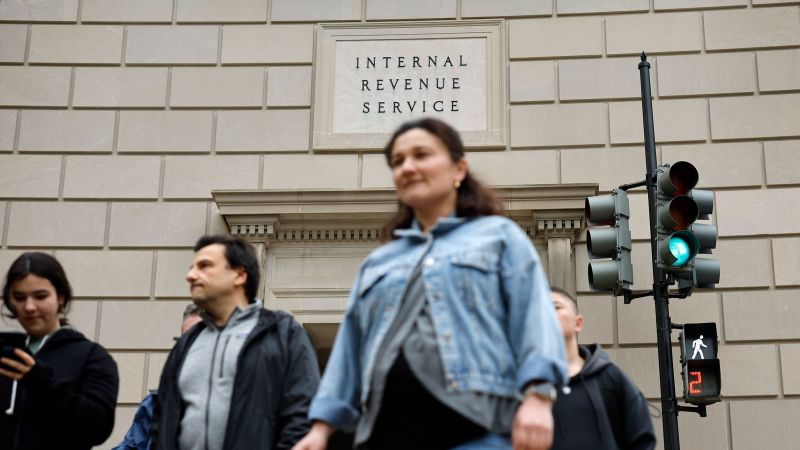The Internal Revenue Service is moving ahead with a plan to build its own free tax filing program, known as Direct File, announcing Tuesday that a pilot version will be available to some taxpayers in 13 states next year.
Armed with an influx of new money approved by Democrats last year, the IRS is conducting a major overhaul of its operations – despite continued threats from Republicans to cut future funding and even abolish the agency altogether.
Eventually, the IRS tax filing system could serve as an alternative to private tax preparation companies like H&R Block and Intuit’s TurboTax.
But for now, the online pilot program will be very limited in scope. Only taxpayers in those 13 states with specific, eligible tax situations will be able to participate.
The IRS anticipates that at least several hundred thousand taxpayers will decide to participate in the pilot.
Critics of Direct File, including H&R Block and Intuit, argue that a government-run system will likely provide a worse taxpayer experience than what is currently available and that the federal tax collector should not also play the role of tax preparer.
“I can’t stress enough that Direct File, if pursued further after the pilot, would be just another choice taxpayers have to help them prepare their tax returns,” IRS Commissioner Danny Werfel said on a call with reporters Tuesday.
Taxpayers would still be able to use a tax professional, commercial tax software or the existing Free File program, which is provided by seven different private companies.
The Direct File pilot program will help the IRS determine whether it’s feasible to offer a government-run tax filing system to more taxpayers in the future.
Some taxpayers in Arizona, California, Massachusetts and New York will be eligible for the pilot program during the 2024 tax season that will launch in January. The states have opted to integrate their state taxes with the federal Direct File system.
The Direct File pilot will cover only individual federal tax returns. But once a federal return is filed, taxpayers will be guided to a state-supported tool that they can use to file their state tax return.
Taxpayers in nine other states that do not levy a state income tax – Alaska, Florida, New Hampshire, Nevada, South Dakota, Tennessee, Texas, Washington and Wyoming – may also be eligible to participate in the pilot.
Washington has also opted to integrate the state’s application for the Working Families Tax Credit with the federal Direct File system so that taxpayers are connected with the state form after filing their federal return.
But not every taxpayer in the 13 participating states will be allowed to use Direct File next year. Eligibility will be limited to taxpayers with certain kinds of income that claim specific kinds of credits and deductions.
The IRS has not finalized the exact tax situations that will be compatible with the pilot program next year. But Werfel expects those with wages reported on a Form W-2 and who claim tax credits like the Earned Income Tax Credit and the Child Tax Credit will be covered.
The IRS has seen years of reduced funding, resulting in a decrease in both staffing levels and audit rates. But thanks to the Democrats’ Inflation Reduction Act, a sweeping federal spending package that passed Congress in 2022, the agency is set to receive a steady stream of long-term funding to help crack down on tax cheats and transform its operations.
The IRS says the money has already helped it improve taxpayer services. In the 2023 filing season, it answered 3 million more calls and cut phone wait times to three minutes from 28 minutes compared with the year before.
The IRS has also put a plan in motion to digitize all paper-filed tax returns by 2025. The move is expected to cut processing times in half and speed up refunds by four weeks.
The Inflation Reduction Act included a provision to deliver $80 billion to the IRS over 10 years, but Republicans have raised questions about whether the investment would lead to increased audits for average Americans. Earlier this year, Republican lawmakers were able to reclaim $20 billion of the funding in a bipartisan deal to address the debt ceiling.
The White House argued that the cut won’t fundamentally change what the IRS can do over the next few years. Biden administration officials have also repeatedly said that taxpayers earning less than $400,000 a year won’t face an increase in audits due to the new funding.
Read the full article here





